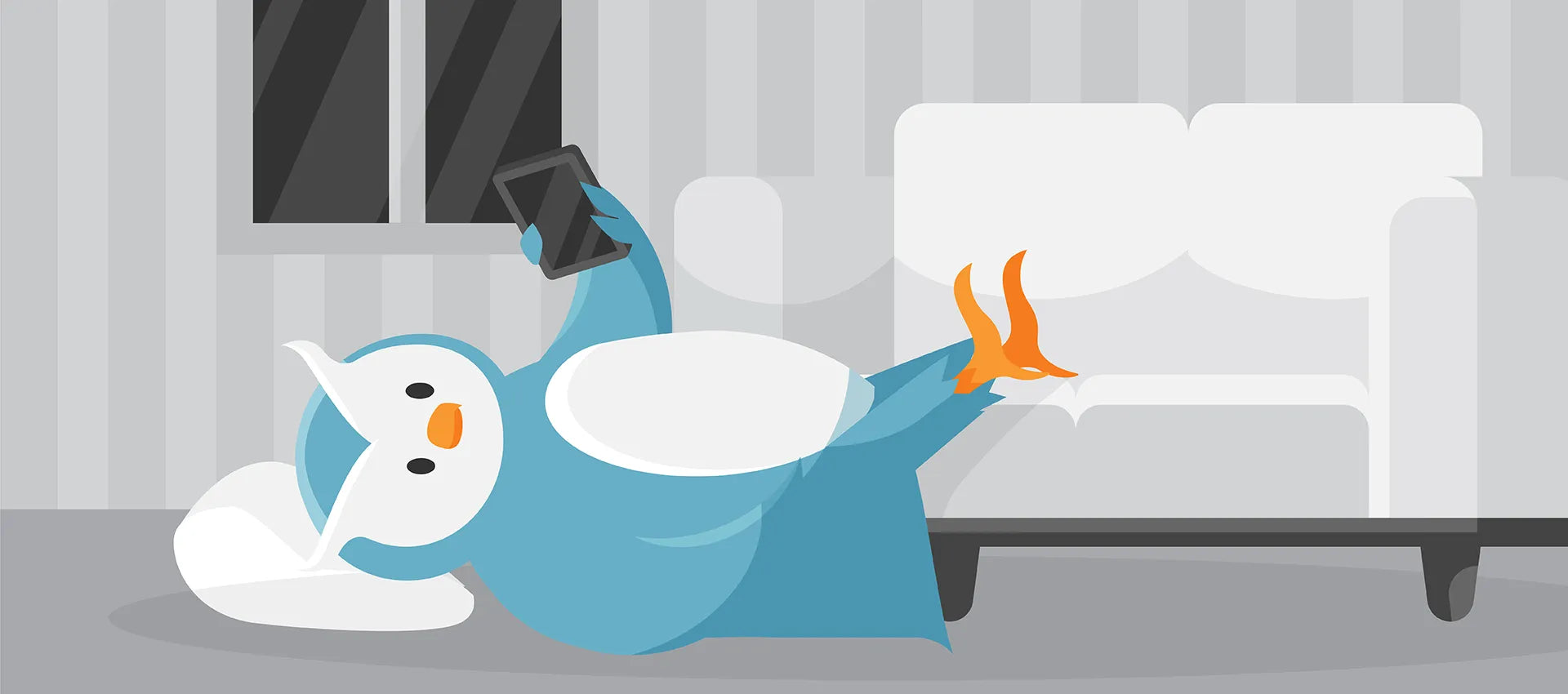Getting upper back pain while sleeping or lying down?
You're not alone. This condition is widespread and affects people of all ages.
If the quality of your sleep is hampered by upper back pain, it can impact your general health too.
The pain often starts as a dull sensation, later becoming more severe. It often then radiates towards the neck and shoulder [1].
The causes of upper back pain when sleeping can vary.
An overly soft mattress doesn't help either.
If you're wondering what's happening inside your body, read on. If you only care about what you need to do, use the table of contents below to skip ahead.
Which Area of The Back Is Considered "Upper"?
The upper back refers to the area between your neck and lower back. The thoracic spine is another name for it.
The thoracic spine in the upper back comprises twelve vertebrae numbered T1 to T12.
That means the first vertebra under your neck (T1) down to roughly around the bottom of your rib cage (T12).
The upper back is essential for your body stability. It joins the neck to the lower back and serves to safeguard the heart and lungs.
It helps maintain a straight posture and makes moving the arms and shoulders easier.
Movements such as bending, twisting, and raising rely on the upper back muscles[3]. The latissimus dorsi, rhomboids, and trapezius are a few of the prominent muscles in this region.
Together, these muscles help stabilise the spine and enable upper-body movements.
With such important roles to play, when you have upper back pain sleeping or lying down, it's good to take it seriously.
Upper Back Pain at Night Is a Red Flag
Remember that upper back pain at night is a red flag. I've created an entire article about why that's linked if you'd like to know why.
If you're wondering what the other red flags of upper back pain are, read this article for nine more upper back pain red flags.
Because sleeping with back pain is a red flag, I recommend that you speak with a healthcare professional. Especially if you have persistent or severe pain while sleeping or lying down [2].
Causes & Factors of Upper Discomfort
Your pain may be limited to the upper back, but your shoulder, neck and more rarely your arms can also be affected.
Finding a comfortable posture might be difficult due to the pain. When your sleep is disrupted it's not easy to get comfy when you wake up all the time.
But this disturbed sleep can cause daytime weariness, a loss of concentration, and irritability[4]. All good reasons to commit yourself to finding that comfy position.
As I mentioned above, the causes of upper back pain when sleeping can vary. But the most common culprit is a poor sleeping position.

Sleeping on your stomach or a non-supportive mattress don't help. This situation stretches your upper back ligaments, causing pain [5].
The article I linked above offers more info on the more serious, although more rare, possible causes of your pain.
To cover some briefly, other underlying problems may include arthritis, muscular imbalances, or spinal anomalies.
Chronic upper back pain that prevents you from sleeping can eventually have an adverse effect on your health and well-being.
Managing the situation matters if you want a good night's sleep and an improved quality of life. Here are some tips.
How To Improve Sleep Quality For Back Pain Relief
Different manoeuvres and methods work for different people. But one thing that's almost universal is a supportive mattress and pillow.
You can also try to keep a pillow between your knees if you sleep sideways.
Under your knees is best if you sleep on your back.
Gentle stretching and exercise can help. In the article linked here, you'll find examples that help you stretch your shoulders, your neck, and your upper back.
Once you do these exercises, you'll feel the difference. They'll ease your stiffness, reduce the growing tension in your muscles and enhance blood supply to the upper back region.

Take frequent breaks to stretch and avoiding prolonged sitting or standing in one place can make a big difference.
Stress is a major contributor to upper back discomfort during sleep too.
Meditation, deep breathing exercises, or relaxing activities can all help reduce tension and the possibility of getting that upper back pain while you sleep[1].
If you're in a high stress part of your life right now, you may be surprised by the difference these can make.
If your upper back pain persists, consider getting physical or massage therapy. Specific muscle imbalances can be targeted with physical therapy, or massage techniques can reduce discomfort and enhance general posture and muscle function[5].
Applying an ice pack or cold compress might also numb the region and help reduce inflammation[2].
Conclusion and When to See a Doctor
In conclusion, upper back pain when you sleep or lay down can be an annoying problem. It makes your sleep worse and even affects your general health.
The most common cause is poor sleep posture, muscle tension, or stress. But, sometimes it can be a specific underlying condition.
Some of those conditions are serious, which is why you should speak with your doctor, especially if your back pain is persistent or severe or both.
There's a lot you can do to help your situation, so I hope the list of tips above help and you work through it soon.
References
1. New York Pain Care https://www.newyorkpaincare.com/upper-back-pain-after-sleeping/
2. Gramercy Pain Centre https://www.gramercypaincenter.com/upper-back-pain-after-sleeping-how-to-fix/
3. Keck Medicine https://www.keckmedicine.org/blog/the-best-and-worst-sleep-positions-for-back-pain/
4. Pro care med centre https://www.procaremedcenter.com/reduce-upper-neck-pain-while-sleeping/
5. Health line https://www.healthline.com/health/lower-back-pain-in-the-morning
6. Us Yaasa https://us.yaasa.com/upper-back-pain-after-sleeping/

